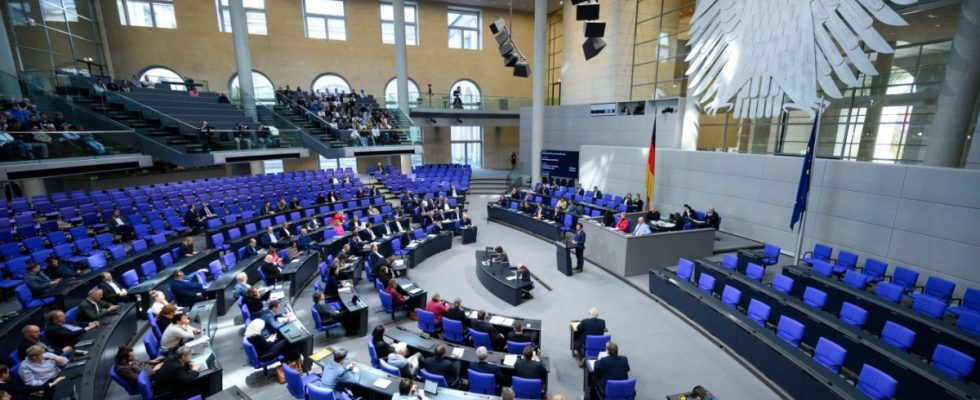The Bundestag has approved the federal government’s draft law on global minimum taxation. The SPD, Greens, FDP and CDU voted for the draft, while the Left and AfD voted against it. The goal of a global minimum tax is to ensure that internationally operating companies are taxed uniformly worldwide.
This is intended to prevent corporations from transferring their profits to low-tax countries and thus avoiding taxes. In Europe, for example, Ireland was previously considered a tax haven; companies like Google and Apple are based there. In 2021, the average tax rate there was 12.5 percent. For comparison: In Germany it was an average of 29.9 percent.
Speakers from the FDP and CDU factions in the Bundestag emphasize that global minimum taxation is not about higher tax revenue, but rather about tax justice. “Tax competition in itself is not a bad thing,” emphasizes FDP MP Maximilian Mordhorst. The new law is intended to combat artificially low tax rates at the expense of exploitation and environmental destruction. “Today’s decision is a great success for Chancellor Olaf Scholz and the federal government,” said SPD MP Parsa Marvi. Katharina Beck, financial policy spokeswoman for the Greens, emphasizes: “This global tax is also so important for international justice – for states in the so-called global south.”
Despite its approval of the draft law, the CDU criticized that the bureaucratic effort in companies was too high. There are still opportunities for tax havens to avoid minimum taxation. The federal government must call on the USA and other countries to take part in the project in order to strengthen the effect of the global minimum tax.
More than 130 states involved in the agreement
In July 2021, the finance ministers of the G-20 countries agreed on a minimum tax rate of 15 percent for companies with an annual turnover of at least 750 million euros. Federal Chancellor Olaf Scholz played a key role in driving the project forward as Finance Minister at the time. “Making profits in Germany and then paying almost no taxes somewhere else – this business model is coming to an end,” said FDP politician Lindner at the time about the agreement. “Corporations that make profits on our market must also participate in financing the community.”
The law also stipulates that the country in which the parent company is based has the right to tax profits from a tax haven. This is intended to ensure that these profits are also subject to an effective tax of 15 percent. With the draft law, the federal government is implementing the EU directive on global minimum taxation. All EU states must have transposed the directive into national law by the end of the year. More than 130 countries are taking part in the process led by the Organization for Economic Co-operation and Development (OECD).

